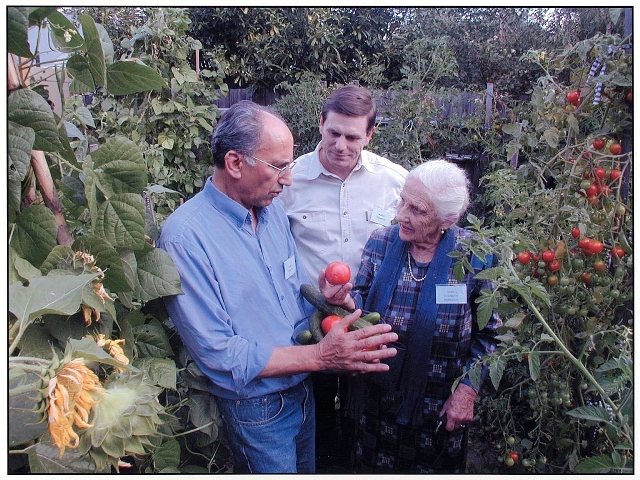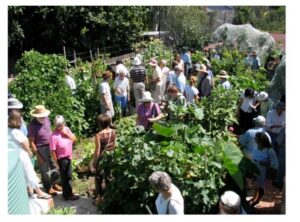
Mark Dymiotis was born in the 1940s and grew up in Agros – high on the Cyprus mountains. He studied Engineering in Greece and The Netherlands. La Trobe University, Melbourne, named him an Honorary Research Fellow.
He migrated to Australia in the mid-1970s, a time which coincided with his renewed interest in the foods and flavours he grew up with.
Melbourne, with its large Greek and Italian communities, who passionately followed their traditional diet by growing fruit and vegetables in their backyards, was the perfect place to observe and interview elderly people to help him revive his childhood flavours.
Soon after migration, he commenced growing vegetables and fruit trees and later expanded to foraging wild greens. This was also the time he began making the traditional bread – his favourite childhood food.
His special interests include traditional bread, olives, olive oil, wild greens, wine making as well as constructing and firing backyard brick ovens. He has also focused on composting which is essential for growing fruit and vegetables naturally.
He authored the document, Interviewing Principles, for students at the University of Cyprus to help in their interviews of older people about their traditional diet.
In addition to being a strong advocate of the traditional Mediterranean diet, since 1989, Mark has been teaching the fundamentals of this diet at the Centre for Adult Education (CAE) in Melbourne. He has also published articles and peer reviewed papers in academic journals and made presentations in forums including local clubs, schools, universities and international conferences.

In 2004, he worked with Murray Thompson, State Member for Sandringham, Victoria, in the organising and running of a very successful backyard vegetable growing competition in Melbourne. The event attracted considerable media attention, enriched his gardening knowledge and increased his enthusiasm for the promotion of such gardens for increased food flavour, health and environmental benefits.
Dame Elisabeth Murdoch was the patron and launched this competition from Mark’s garden where she shared with Mr Thompson and reporters a traditional meal from the garden.
The Markos Vegetable Garden was part of Australia’s Open Garden Scheme in 2006, 2008, 2010 and 2011 attracting more than 6,000 visitors.
The garden has been featured on ABC TV, Channel 9 and Life Style Channel. In addition, Mark has appeared on radio (ABC 774 and 3AW).
Journalists and cooking experts including author/restaurateur Stephanie Alexander have visited his village-style garden and have written about his work in books and media outlets.
Mark has had several articles published in mainstream media. Manuscripts in progress include Olive Oil, Olives, Backyard Vegetable Growing, Tomato Growing, Old Style Bread, Legumes.

His backyard has been developed in a Greek traditional style where vegetables and fruit trees, as well as the Greek customary but environmentally friendly grape vine pergolas, are the dominant features. An open compost area and a compost bin for the kitchen waste are centrally located for easy operation. Other features of the garden include a large backyard wood-fired oven for bread and pizzas, a small one for roasts and water tanks to collect rain water for the garden. The three tanks are connected for more efficient collection, storage and use of water. Watering is done by gravity using large hoses with a rug attached at the end of the hose to break the water pressure.

Wild greens, a major part of the Greek traditional diet, such as dandelion, chicory, thistle, amaranth and stinging nettles grow in his garden and are used extensively.
The front garden has been developed in Mediterranean cottage style featuring fruit trees and a culinary and medicinal herb collection planted and maintained by the Herb Society of Victoria.
Essential position: The traditional everyday dietary practices of Greece and the Mediterranean are essential for health, environment and social benefits – especially to low-income people.